- Home
- Robert Jordan
Prologue to Towers of Midnight Page 3
Prologue to Towers of Midnight Read online
Page 3
Graendal needed time, and she needed to discover what al’Thor knew. If Nynaeve al’Meara had the skill needed to read Compulsions, that was dangerous. Graendal needed to lay him a false trail, delay him—hence her requirement that Delana create a thick Compulsion with strange provisions in it.
Bring him agony. Graendal could do that.
“You next,” she said to Aran’gar once Delana had finished. “Something convoluted. I want al’Thor and his Aes Sedai to find the touch of a man on the mind.” That would confuse them further.
Aran’gar shrugged, but did as asked, laying down a thick and complex Compulsion on the unfortunate Ramshalan’s mind. He was somewhat pretty. Did al’Thor assume she’d want him for one of her pets? Did he even remember enough of being Lews Therin to know that about her? Her reports on how much of his old life he remembered were contradictory, but he seemed to be recalling more and more. That was what worried her. Lews Therin could have tracked her to this palace, perhaps. She’d never expected that al’Thor would be able to do the same.
Aran’gar finished.
“Now,” Graendal said, releasing her weaves of Air and speaking to Ramshalan, “return and tell the Dragon Reborn of your success here.”
Ramshalan blinked, shaking his head. “I … Yes, my Lady. Yes, I believe the ties we made today will be extremely beneficial to both of us.” He smiled. Weak-minded fool. “Perhaps we should dine and drink to our success, Lady Basene? It has been a wearying trip to see you, and I—”
“Go,” Graendal said coldly.
“Very well. You will be rewarded when I am king!”
Her guards led him away, and he began whistling with a self-satisfied air. Graendal sat down and closed her eyes; several of her soldiers stepped over to guard her, their boots soft on the thick rug.
She looked through the dove’s eyes, accustoming herself to its strange way of seeing. At her order, a servant picked it up and carried it to a window in the hallway outside the room. The bird hopped onto the windowsill. Graendal gave it a soft nudge to go forward; she wasn’t practiced enough to take control completely. Flying was far more difficult than it looked.
The dove flapped out of the window. The sun was lowering behind the mountains, outlining them in angry red and orange, and the lake below fell into a deep, shadowy blue-black. The view was thrilling but nauseating as the dove soared up into the air and landed on one of the towers.
Ramshalan eventually walked out of the gates below. Graendal nudged the dove and it leaped off the tower, plunging toward the ground. Graendal gritted her teeth at the stomach-churning descent, the palace stoneworks becoming a blur. The dove leveled out and flapped after Ramshalan. He seemed to be grumbling to himself, though she could make out only rudimentary sounds through the dove’s unfamiliar earholes.
She followed him for some time through the darkening woods. An owl would have been better, but she didn’t have one captive. She chided herself for that. The dove flew from branch to branch. The forest floor was a messy tangle of underbrush and fallen pine needles. She found that distinctly unpleasant.
There was light up ahead. It was faint, but the dove’s eyes could easily pick out light and shadow, motion and stillness. She nudged it to investigate, leaving Ramshalan.
The light was coming from a gateway in the middle of a clear patch, spilling forth a warm glow. There were figures standing before it. One of them was al’Thor.
Graendal felt instant panic. He was here. Looking down over the ridge, toward her. Darkness within! She hadn’t known for certain if he’d be here in person, or if Ramshalan would travel through a gateway to give his report. What game was al’Thor playing? She landed her dove on a branch. Aran’gar was complaining and asking Graendal what she was seeing. She’d seen the dove, and would know what Graendal was up to.
Graendal concentrated harder. The Dragon Reborn, the man who had once been Lews Therin Telamon. He knew where she was. He had once hated her deeply; how much did he remember? Did he recall her murder of Yanet?
Al’Thor’s tame Aiel brought Ramshalan forward, and Nynaeve inspected him. Yes, that Nynaeve did seem to be able to read Compulsion. She knew what to look for, at least. She would have to die; al’Thor relied upon her; her death would bring him pain. And after her, al’Thor’s dark-haired lover.
Graendal nudged the dove down onto a lower branch. What would al’Thor do? Graendal’s instincts said he wouldn’t dare move, not until he unraveled her plot. He acted the same now as he had during her Age; he liked to plan, to spend time building to a crescendo of an assault.
She frowned. What was he saying? She strained, trying to make sense of the sounds. Cursed bird’s earholes—the voices sounded like croaks. Callandor? Why was he talking about Callandor? And a box …
Something burst alight in his hand. The access key. Graendal gasped. He’d brought that with him? It was nearly as bad as balefire.
Suddenly she understood. She’d been played.
Cold, terrified, she released the dove and snapped her eyes open. She was still sitting in the small, windowless room, Aran’gar leaning beside the doorway with arms folded.
Al’Thor had sent Ramshalan in, expecting him to be captured, expecting him to have Compulsion placed on him. Ramshalan’s only purpose was to give al’Thor confirmation that Graendal was in the tower.
Light! How clever he’s become.
She released the True Power and embraced less-wonderful saidar. Quickly! She was so unsettled that her embrace nearly failed. She was sweating.
Go. She had to go.
She opened a new gateway. Aran’gar turned, staring through the walls in the direction of al’Thor. “So much power! What is he doing?”
Aran’gar. She and Delana had made the weaves of Compulsion.
Al’Thor must think Graendal dead. If he destroyed the place and those Compulsions remained, al’Thor would know that he’d missed and that Graendal lived.
Graendal formed two shields and slammed them into place, one for Aran’gar, one for Delana. The women gasped. Graendal tied off the weaves and bound the two in Air.
“Graendal?” Aran’gar said, voice panicked. “What are you—”
It was coming. Graendal leaped for the gateway, rolling through it, tumbling and ripping her dress on a branch. A blinding light rose behind her. She struggled to dismiss the gateway, and caught one glimpse of the horrified Aran’gar before everything behind was consumed in beautiful, pure whiteness.
The gateway vanished, leaving Graendal in darkness.
She lay, heart beating at a terrible speed, nearly blinded by the glare. She’d made the quickest gateway she could, one that led only a short distance away. She lay in the dirty underbrush atop a ridge behind the palace.
A wave of wrongness washed over her, a warping in the air, the Pattern itself rippling. A balescream, it was called—a moment when creation itself howled in pain.
She breathed in and out, trembling. But she had to see. She had to know. She rose to her feet, left ankle twisted. She hobbled to the treeline and looked down.
Natrin’s Barrow—the entire palace—was gone. Burned out of the Pattern. She couldn’t see al’Thor on his distant ridge, but she knew where he was.
“You,” she growled. “You have become far more dangerous than I assumed.”
Hundreds of beautiful men and women, the finest she’d gathered, gone. Her stronghold, dozens of items of Power, her greatest ally among the Chosen. Gone. This was a disaster.
No, she thought. I live. She’d anticipated him, if only by a few moments. Now he would think she was dead.
She was suddenly the safest she’d been since escaping the Dark One’s prison. Except, of course, that she’d just caused the death of one of the Chosen. The Great Lord would not be pleased.
She limped away from the ridge, already planning her next move. This would have to be handled very, very carefully.
* * *
Galad Damodred, Lord Captain Commander of the Children of the Light, ya
nked his booted foot free of the ankle-deep mud with a slurping sound.
Bitemes buzzed in the muggy air. The stench of mud and stagnant water threatened to gag him with each breath as he led his horse to drier ground on the path. Behind him trudged a long, twisting column four men wide, each one as muddied, sweaty and weary as he was.
They were on the border of Ghealdan and Altara, in a swampy wetland where the oaks and spicewoods had given way to laurels and spidery cypress, their gnarled roots spread like spindly fingers. The stinking air was hot—despite the shade and cloud cover—and thick. It was like breathing in a foul soup. Galad steamed beneath his breastplate and mail, his conical helmet hanging from his saddle, his skin itching from the grime and salty sweat.
Miserable though it was, this route was the best way. Asunawa would not anticipate it. Galad wiped his brow with the back of his hand and tried to walk with head high for the benefit of those who followed him. Seven thousand men, Children who had chosen him rather than the Seanchan invaders.
Dull green moss hung from the branches, drooping like shreds of flesh from rotting corpses. Here and there the sickly grays and greens were relieved by a bright burst of tiny pink or violet flowers clustering around trickling streams. Their sudden color was unexpected, as if someone had sprinkled drops of paint on the ground.
It was strange to find beauty in this place. Could he find the Light in his own situation as well? He feared it would not be so easy.
He tugged Stout forward. He could hear worried conversations from behind, punctuated by the occasional curse. This place, with its stench and biting insects, would try the best of men. Those who followed Galad were unnerved by the place the world was becoming. A world where the sky was constantly clouded black, where good men died to strange twistings of the Pattern, and where Valda—the Lord Captain Commander before Galad—had turned out to be a murderer and a rapist.
Galad shook his head. The Last Battle would soon come.
A clinking of chain mail announced someone moving up the line. Galad glanced over his shoulder as Dain Bornhald arrived, saluted, and fell into place beside him. “Damodred,” Dain said softly, their boots squishing in mud, “perhaps we should turn back.”
“Backward leads only to the past,” Galad said, scanning the pathway ahead. “I have thought about this much, Child Bornhald. This sky, the wasting of the land, the way the dead walk … There is no longer time to find allies and fight against the Seanchan. We must march to the Last Battle.”
“But this swamp,” Bornhald said, glancing to the side as a large serpent slid through the underbrush. “Our maps say we should have been out of it by now.”
“Then surely we are near the edge.”
“Perhaps,” Dain said, a trail of sweat running from his brow down the side of his lean face, which twitched. Fortunately, he’d run out of brandy a few days back. “Unless the map is in error.”
Galad didn’t respond. Once-good maps were proving faulty these days. Open fields would turn to broken hills, villages would vanish, pastures would be arable one day, then suddenly overgrown with vines and fungus. The swamp could indeed have spread.
“The men are exhausted,” Bornhald said. “They’re good men—you know they are. But they are starting to complain.” He winced, as if anticipating a reprimand from Galad.
Perhaps once he would have given one. The Children should bear their afflictions with pride. However, memories of lessons Morgase had taught—lessons he hadn’t understood in his youth—were nagging at him. Lead by example. Require strength, but first show it.
Galad nodded. They were nearing a dry clearing. “Gather the men. I will speak to those at the front. Have my words recorded, then passed to those behind.”
Bornhald looked perplexed, but did as commanded. Galad stepped off to the side, climbing up a small hill. He placed his hand on the hilt of his sword, inspecting his men as the companies at the front gathered around. They stood with slouched postures, legs muddied. Hands flailed at bitemes or scratched at collars.
“We are Children of the Light,” Galad announced, once they were gathered. “These are the darkest days of men. Days when hope is weak, days when death reigns. But it is on the deepest nights when light is most glorious. During the day, a brilliant beacon can appear weak. But when all other lights fail, it will guide!
“We are that beacon. This mire is an affliction. But we are the Children of the Light, and our afflictions are our strength. We are hunted by those who should love us, and other pathways lead to our graves. And so we will go forward. For those we must protect, for the Last Battle, for the Light!
“Where is the victory of this swamp? I refuse to feel its bite, for I am proud. Proud to live in these days, proud to be part of what is to come. All the lives that came before us in this Age looked forward to our day, the day when men will be tested. Let others bemoan their fate. Let others cry and wail. We will not, for we will face this test with heads held high. And we will let it prove us strong!”
Not a long speech; he did not wish to extend their time in the swamp overly much. Still, it seemed to do its duty. The men’s backs straightened, and they nodded. Men who had been chosen to do so wrote down the words, and moved back to read them to those who had not been able to hear.
When the troop continued forward, the men’s footsteps no longer dragged, their postures were no longer slumped. Galad remained on his hillside, taking a few reports, letting the men see him as they passed.
When the last of the seven thousand had gone by, Galad noted a small group waiting at the base of the hill. Child Jaret Byar stood with them, looking up at Galad, sunken eyes alight with zeal. He was gaunt, with a narrow face.
“Child Byar,” Galad said, walking down from the hillside.
“It was a good speech, my Lord Captain Commander,” Byar said fervently. “The Last Battle. Yes, it is time to go to it.”
“It is our burden,” Galad said. “And our duty.”
“We will ride northward,” Byar said. “Men will come to us, and we will grow. An enormous force of the Children, tens of thousands. Hundreds of thousands. We will wash over the land. Maybe we will have enough men to cast down the White Tower and the witches, rather than needing to ally with them.”
Galad shook his head. “We will need the Aes Sedai, Child Byar. The Shadow will have Dreadlords, Myrddraal, Forsaken.”
“Yes, I suppose.” Byar seemed reluctant. Well, he’d seemed reluctant about the idea before, but he had agreed to it.
“Our road is difficult, Child Byar, but the Children of the Light will be leaders at the Last Battle.”
Valda’s misdeeds had tarnished the entire order. More than that, Galad was increasingly convinced that Asunawa had played a large role in the mistreatment and death of his stepmother. That meant the High Inquisitor himself was corrupt.
Doing what was right was the most important thing in life. It required any sacrifice. At this time, the right thing to do was flee. Galad could not face Asunawa; the High Inquisitor was backed by the Seanchan. Besides, the Last Battle was more important.
Galad stepped swiftly, walking through the muck back toward the front of the line of Children. They traveled light, with few pack animals, and his men wore their armor—their mounts were laden with food and supplies.
At the front, Galad found Trom speaking with a few men who wore leathers and brown cloaks, not white tabards and steel caps. Their scouts. Trom nodded to him in respect; the Lord Captain was one of Galad’s most trusted men. “Scouts say there’s a small issue ahead, my Lord Captain Commander,” Trom said.
“What issue?”
“It would be best to show it to you directly, sir,” said Child Barlett, the leader of the scouts.
Galad nodded him forward. Ahead, the swampy forest seemed to be thinning. Thank the Light—did that mean they were nearly free?
No. As Galad arrived, he found several other scouts looking out at a dead forest. Most trees in the swamp bore leaves, though sickly ones, but th
ose ahead were skeletal and ashen, as if burned. There was some kind of sickly white lichen or moss growing over everything. The tree trunks looked emaciated.
Water flooded this area, a wide but shallow river with a very slow current. It had swallowed the bases of many of the trees, and fallen tree limbs broke the dirty brown water like arms reaching toward the sky.
“There are corpses, my Lord Captain Commander,” one of the scouts said, gesturing upriver. “Floating down. Looks like the remnants of a distant battle.”
“Is this river on our maps?” Galad asked.
One by one, the scouts shook their heads.
Galad set his jaw. “Can this be forded?”
“It’s shallow, my Lord Captain Commander,” Child Barlett said. “But we’ll have to watch for hidden depths.”
Galad reached out to a tree beside him and broke free a long branch, the wood snapping loudly. “I will go first. Have the men remove their armor and cloaks.”
The orders went down the line, and Galad took off his armor and wrapped it in his cloak, then tied it to his back. He hiked up his trousers as far as he could, then stepped down the gentle bank and plowed forward into the murky water. The sharply cold spring runoff made him tense. His boots sank inches into the sandy bottom, filling with water, stirring up swirls of mud. Stout made a louder splash as he stepped into the water behind.
It wasn’t too difficult to walk in; the water only came up to his knees. He used his stick to find the best footing. Those skeletal, dying trees were unnerving. They didn’t seem to be rotting, and now that he was closer, he could better see the ash-gray fuzz among the lichen that coated their trunks and branches.
The Children behind splashed loudly as more and more of them entered the wide stream. Nearby, bulbous forms floated down the river to catch upon rocks. Some were the corpses of men, but many were larger. Mules, he realized, catching a better look at a snout. Dozens of them. They’d been dead for some time, judging by the bloat.
Likely a village upstream had been attacked for its food. This wasn’t the first group of dead they’d found.

 Conan the Unconquered
Conan the Unconquered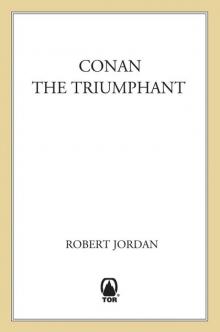 Conan the Triumphant
Conan the Triumphant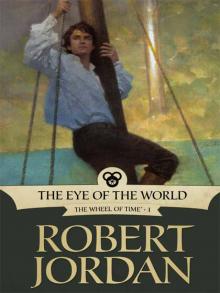 The Eye of the World
The Eye of the World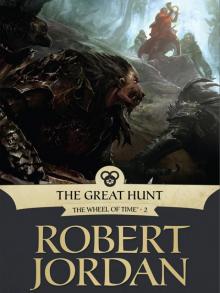 The Great Hunt
The Great Hunt Conan the Victorious
Conan the Victorious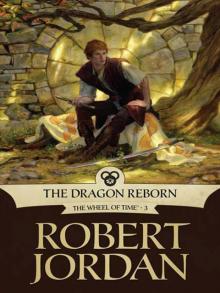 The Dragon Reborn
The Dragon Reborn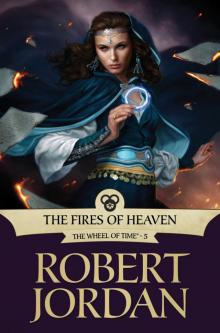 The Fires of Heaven
The Fires of Heaven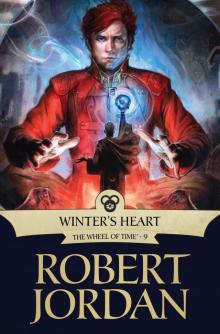 Winter's Heart
Winter's Heart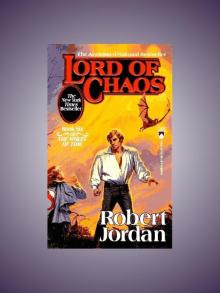 Lord of Chaos
Lord of Chaos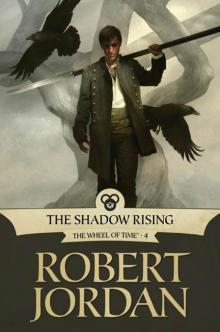 The Shadow Rising
The Shadow Rising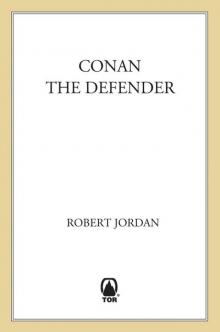 Conan the Defender
Conan the Defender The Strike at Shayol Ghul
The Strike at Shayol Ghul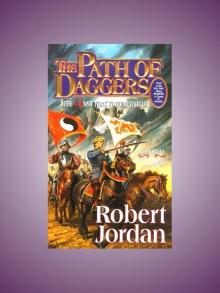 The Path of Daggers
The Path of Daggers A Memory of Light
A Memory of Light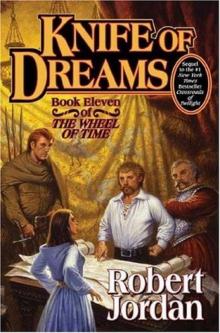 Knife of Dreams
Knife of Dreams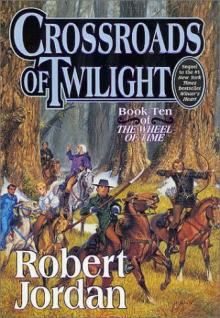 Crossroads of Twilight
Crossroads of Twilight Conan the Invincible
Conan the Invincible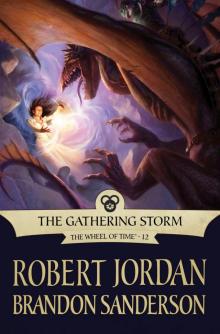 The Gathering Storm
The Gathering Storm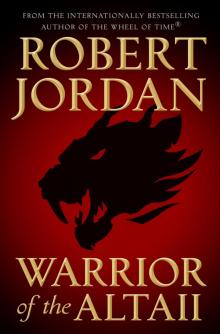 Warrior of the Altaii
Warrior of the Altaii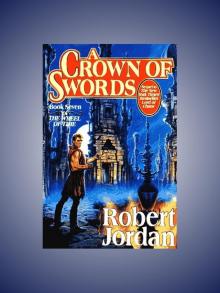 A Crown of Swords
A Crown of Swords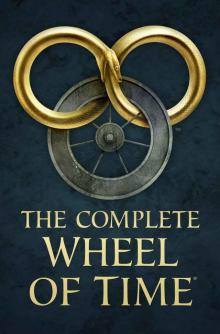 The Wheel of Time
The Wheel of Time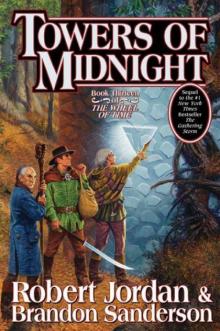 Towers of Midnight
Towers of Midnight Conan Chronicles 2
Conan Chronicles 2 Conan the Magnificent
Conan the Magnificent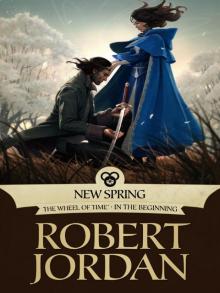 New Spring
New Spring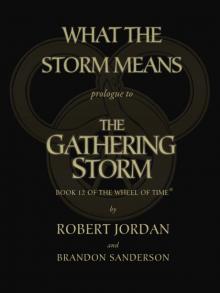 What the Storm Means
What the Storm Means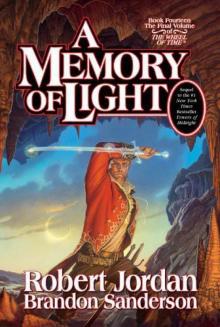 A Memory of Light twot-14
A Memory of Light twot-14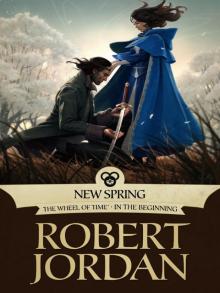 New Spring: The Novel
New Spring: The Novel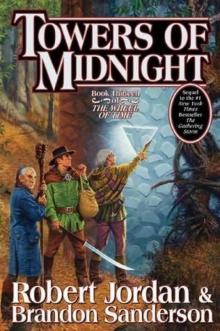 Towers of midnight wot-13
Towers of midnight wot-13 A Memory Of Light: Wheel of Time Book 14
A Memory Of Light: Wheel of Time Book 14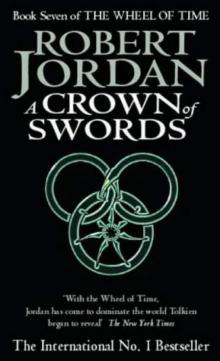 A Crown of Swords twot-7
A Crown of Swords twot-7 Lord of Chaos twot-6
Lord of Chaos twot-6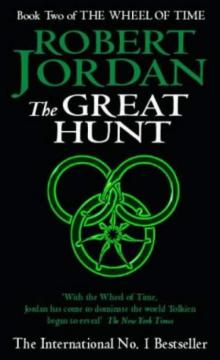 The Great Hunt twot-2
The Great Hunt twot-2 The Shadow Rising twot-4
The Shadow Rising twot-4![Wheel of Time-11] Knife of Dreams Read online](http://i1.bookreadfree.com/i1/04/03/wheel_of_time-11_knife_of_dreams_preview.jpg) Wheel of Time-11] Knife of Dreams
Wheel of Time-11] Knife of Dreams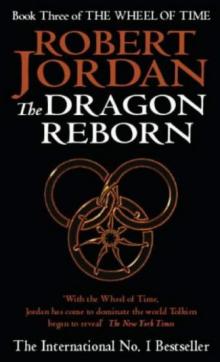 The Dragon Reborn twot-3
The Dragon Reborn twot-3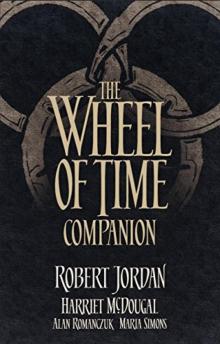 The Wheel of Time Companion
The Wheel of Time Companion The Fires of Heaven twot-5
The Fires of Heaven twot-5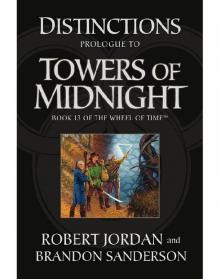 Prologue to Towers of Midnight
Prologue to Towers of Midnight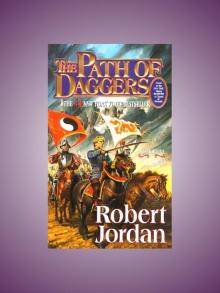 The Path of Daggers - The Wheel of Time Book 8
The Path of Daggers - The Wheel of Time Book 8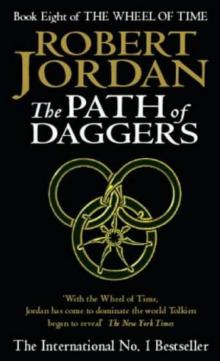 The Path of Daggers twot-8
The Path of Daggers twot-8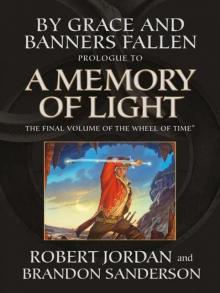 By Grace and Banners Fallen: Prologue to a Memory of Light
By Grace and Banners Fallen: Prologue to a Memory of Light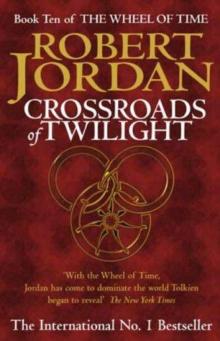 Crossroads of Twilight twot-10
Crossroads of Twilight twot-10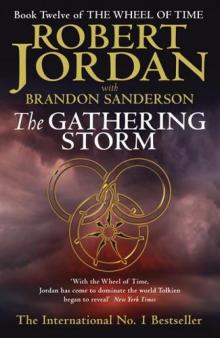 The Gathering Storm twot-12
The Gathering Storm twot-12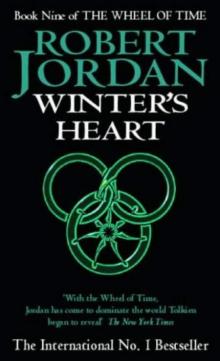 Winter's Heart twot-9
Winter's Heart twot-9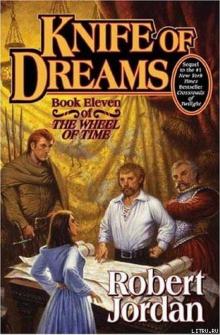 Knife of Dreams twot-11
Knife of Dreams twot-11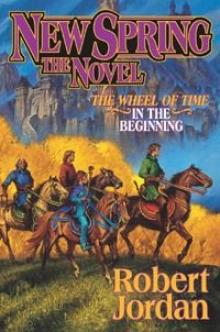 New Spring: The Novel (wheel of time)
New Spring: The Novel (wheel of time)